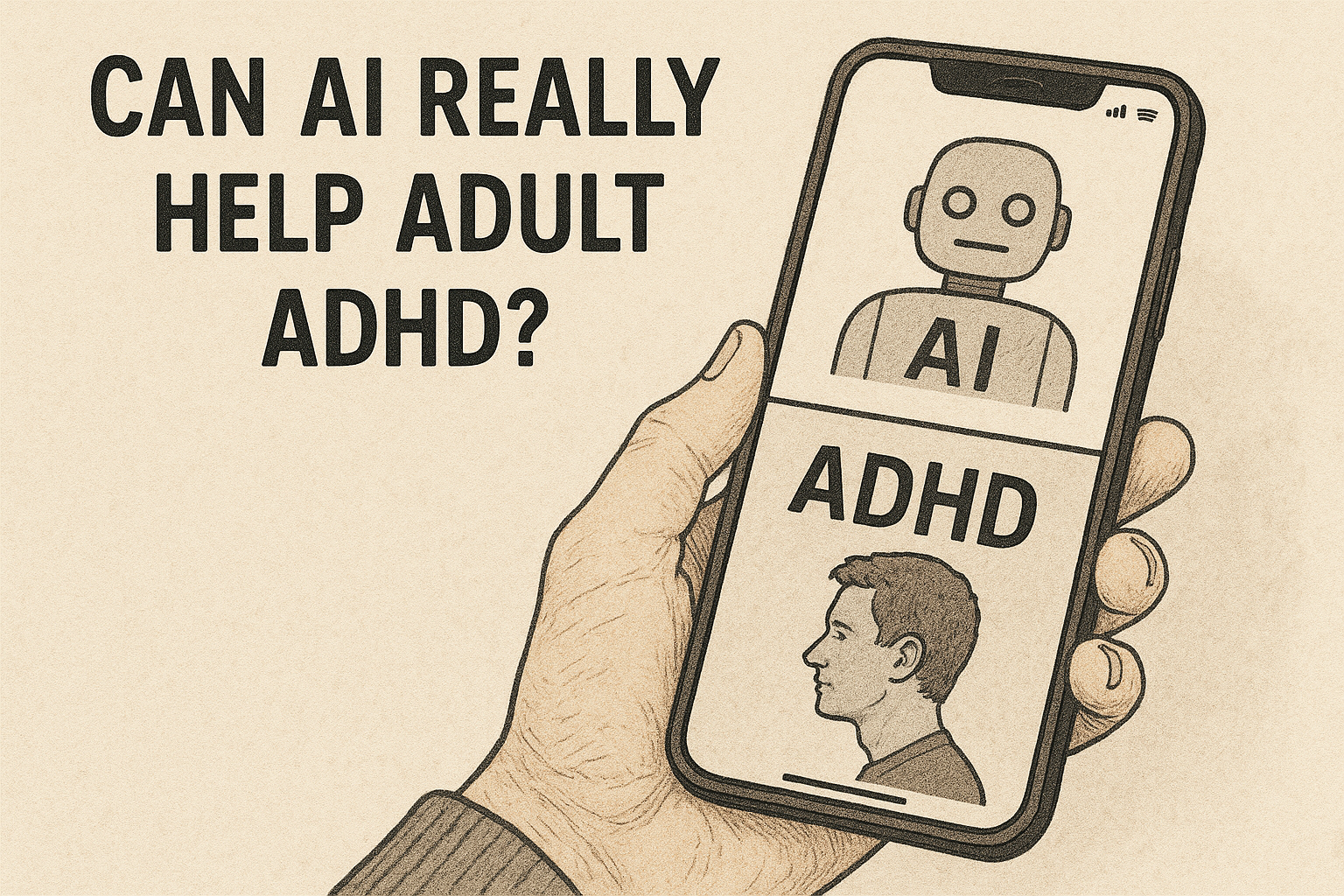Can AI Really Help with Adult ADHD?

Living with ADHD as an adult can feel overwhelming. You start tasks but struggle to finish them. Traditional approaches have their place, but AI technology offers new possibilities for support. Early research suggests AI could help with more accurate diagnoses and daily productivity support. However, it’s important to understand both the potential benefits and current limitations.
Your AI-Powered Daily Assistant
Daily life management is where AI shows particular promise for ADHD adults. Productivity apps use AI to create manageable task lists and suggest optimal work times. Voice assistants capture fleeting thoughts before they disappear. Wearable devices suggest breaks based on activity patterns. General AI assistants like ChatGPT help users break down complex projects and manage to-do lists. ADHD coaches teach clients to use these tools for meal planning and email drafting. Many describe AI as providing “a starting point when their brain feels stuck.” Arota.ai demonstrates how AI can be specifically designed to work with ADHD brain patterns rather than against them.
The Challenge of Getting Diagnosed
Adult ADHD diagnosis is difficult. There’s no definitive test—doctors rely on interviews and questionnaires. This subjective approach can lead to delayed or inaccurate diagnoses. AI research is exploring new possibilities. A UK NHS study tested a hybrid AI model with over 500 patients, showing 93.6% accuracy in ADHD identification. German researchers experimented with virtual reality systems tracking eye movements and brain activity, achieving 81% accuracy. These AI systems aim for greater objectivity by analyzing data patterns that might be difficult for humans to detect consistently.
AI as Your Digital Therapist
Finding specialized ADHD therapy can be challenging due to long wait times and high costs. This has led researchers to explore AI-based therapeutic support. A pilot study tested a CBT chatbot called ‘Todaki’ with 46 adults. After four weeks, participants reported improvements in ADHD symptoms. Users found the 24/7 availability helpful, though some noted conversational limitations. Recent research suggests AI models like ChatGPT-4 Turbo and Claude-3 Opus show promise in therapy settings, with enhanced session interactivity and empathetic interactions. AI therapy tools might offer supplementary support with consistent availability and structured guidance. However, they’re unlikely to fully replace human therapeutic relationships.
The Reality Check
AI isn’t a cure for ADHD. Current research shows promise but often involves small studies needing broader validation. Challenges include algorithmic bias, inconsistent data quality, and the need for extensive datasets. Privacy considerations are significant. These tools collect detailed personal data about daily habits and challenges. Users should carefully evaluate data protection policies before sharing sensitive information. AI tools are best viewed as potential supplements to established treatments. They might offer helpful structure and consistency for some people but shouldn’t replace professional medical care, established therapies, or proven lifestyle interventions. Individual experiences will vary widely. What works for one person might not be effective for another. The field is evolving rapidly, and the integration of AI technologies is becoming increasingly evidence-based. If you’re considering AI tools for ADHD support, discuss them with your healthcare provider. They can help evaluate whether these emerging technologies might fit into your overall management plan. The evidence suggests AI could become a valuable addition to traditional ADHD management approaches, depending on how well these tools integrate with existing care systems and individual user needs.
Please remember: this is not medical advice, but shared knowledge to support your understanding. For personalized guidance, speak to a qualified mental health professional you trust.